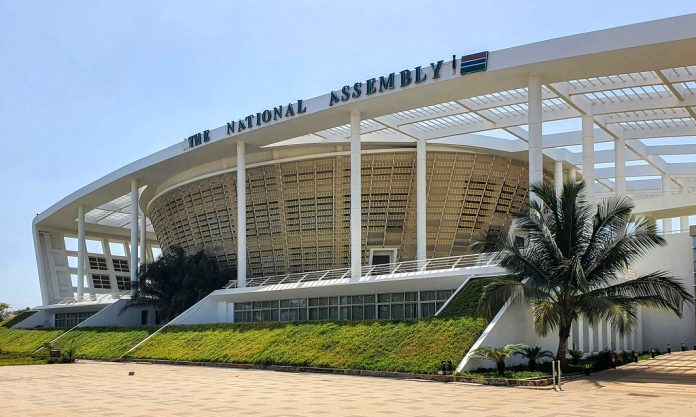By Kebba AF Touray
A highly anticipated parliamentary report into a $30 million petroleum importation scandal — widely dubbed the Russian Oil Saga — is set to be presented before the National Assembly on Thursday, July 26, 2025, following months of investigation by a powerful joint legislative committee.
The report, compiled by the Joint Committee on the Finance and Public Accounts Committee (FPAC) and the Public Enterprises Committee (PEC), seeks to explain the whereabouts and handling of 36,953.614 metric tons of petroleum products, valued at approximately Two Billion, One Hundred and Sixty Million Dalasi (D2.16 billion) — a cargo that reportedly entered Gambian territory in 2023.
The saga, which has gripped public attention for over a year, surfaced after Hon. Samba Jallow, the Member for Niamina Dankunku, posed a question to Energy Minister Nani Juwara on the origin, destination, and ultimate sale of the petroleum cargo — believed to have originated from Russia and routed into Gambian ports.
In response, Minister Juwara confirmed that the fuel had been offloaded at Gam Petroleum’s depot, but he provided few details on the transaction’s structure, revenue implications, or tax compliance — sparking widespread concern in the Assembly.
Following this, Hon. Sainey Jawara, the Member for Lower Saloum, moved a successful motion calling for a full-scale parliamentary inquiry. The plenary backed the call unanimously, mandating the joint FPAC-PEC committee to probe the matter and return with findings.
The committee — co-chaired by Hon. Lamin J. Sanneh of PEC and Hon. Alhagie S. Darboe of FPAC, both lawmakers representing Brikama constituencies — was originally scheduled to table its report during the March 2025 session. However, citing the complexity of the matter and the volume of witness testimony, the committee requested and was granted an extension.
“We needed more time to get to the bottom of this,” a source familiar with the investigation said. “There were inconsistencies in testimony, missing records, and unclear lines of accountability.”
Since March, the committee has held closed-door hearings and gathered documents from multiple institutions including Gam Petroleum, the Financial Intelligence Unit (FIU) of the Central Bank of The Gambia, the Gambia Revenue Authority, and independent petroleum marketers.
While the report’s contents remain confidential until formally tabled, sources suggest it may include allegations of tax evasion, regulatory lapses, and possible financial misconduct by key players in the supply chain. According to insiders, the report will also recommend disciplinary or legal action against those found responsible.
“The value of this fuel alone demands clarity,” one lawmaker said off the record. “We can’t pretend business went on as usual. Someone must answer.”
The Office of the Clerk of the National Assembly confirmed the report’s new tabling date in a public notice: “The Joint Committee of FPAC and PEC on the Parliamentary Inquiry into the Petroleum Product of 36,953.614 metric tons valued at $30,000,000 is scheduled to table its report on Friday 26th July 2025.”
The report’s presentation is expected to be followed by a plenary debate, where lawmakers will scrutinise the findings and determine whether the recommendations are strong enough to trigger government action. Members may also propose their amendments or insist on stronger enforcement mechanisms.
“This is not just about petroleum — it’s about trust in public institutions,” said a civil society analyst. “If Parliament gets this right, it sends a message that the era of unaccountable transactions is over.”
At the heart of the controversy is whether the petroleum was legally imported and if the proceeds from its sale were properly recorded and taxed. Observers have questioned whether the shipment was fully declared at customs and whether it complied with the country’s energy licensing rules.
The saga has been informally dubbed the Russian Oil Saga due to unconfirmed reports that the shipment originated from Russian suppliers, raising further questions about transparency in procurement and compliance with international trade rules.
The investigation is among the most high-profile probes ever conducted by the National Assembly. Its outcome could have serious implications for the government’s image, especially at a time when international partners are pressing The Gambia for reforms in transparency and good governance.
The July 26 session is expected to draw significant public and media attention. If the report implicates senior officials or institutions, it could lead to resignations, prosecutions, or a major shake-up in the way petroleum products are handled in the country.
For now, all eyes remain on the National Assembly as it prepares to confront the findings of a scandal that has raised far-reaching questions about accountability, state revenue, and institutional credibility in one of The Gambia’s most critical sectors.



















